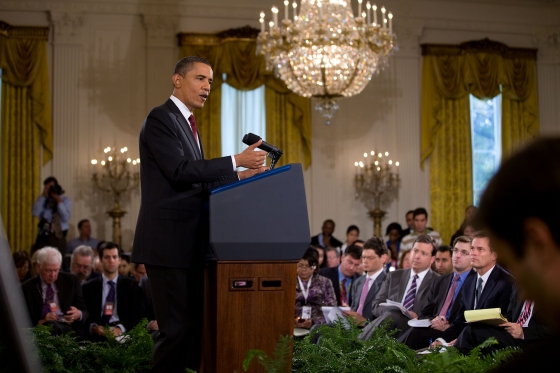
Election Day Results in Republican Gains
After polls closed around the country on November 2nd, a shift in the balance of power occurred. Some races are still being tallied, but results to date show that Republicans gained 61 seats and the majority in the U.S. House of Representatives. Democrats held on to their majority in the U.S. Senate, but gave up five seats. Republicans took 11 governorships from the Democrats. Use the chart below to see how often control of the U.S. House or Senate has changed from one political party to the other.
Republican Wave
Exit polls showed that many people continue to be concerned about the state of the economy. The polls also showed that many voters who describe themselves as “Independent” voted for Republican candidates in this election.
When the 112th Congress opens on January 3, 2011, there will be about 93 new people on the job as legislators. Leadership of the House will change hands as well. Nancy Pelosi (D) of California is currently the House Majority Leader. Because her party lost the majority, she will step down from that role. John Boehner (R) of Ohio is expected to assume the position of Majority Leader. According to a report in the Washington Post, Boehner said of his party’s victory: “Across the country right now, we are witnessing a repudiation [rejection] of Washington, a repudiation of big government and a repudiation of politicians who refuse to listen to the people.”
Democrats maintained control of the Senate in spite of the fact that Republicans gained at least six seats. The race for the Senate seat in Alaska is not final, but Republican Lisa Murkowski is showing a strong lead. This is noteworthy because Murkowski is running as a write-in candidate. Because she lost in her party’s primary earlier in the year, her name was not put on the ballot. She decided to run anyway and is currently well-ahead of Tea Partier Joe Miller and Democrat Scott McAdams. In order for people to vote for her, they actually have to write her name on their ballot. Her campaign Web site even posted a video explaining what to do. If Murkowski goes on to win, she’ll be the first elected to the Senate as a write-in candidate since 1954.
Voters selecting state governors also showed a preference for Republican leaders over Democrats. Many states across the nation are faced with serious budget issues because of the weak economy. Exit polls in many governor races revealed that the economy was a concern for voters.
President Obama Reacts
The president held a news conference on the day following the election. After a short statement, he fielded questions for about an hour. He acknowledged that the slow economy was a hot issue and that many voters did not agree with the way his administration was handling it. He asserted that it would be important for Republicans and Democrats to work together in order to lead the nation forward. Watch President Obama’s comments for yourself here.



